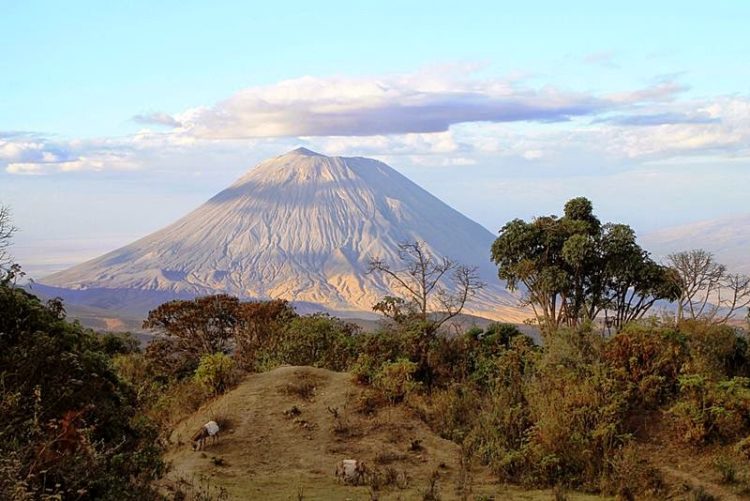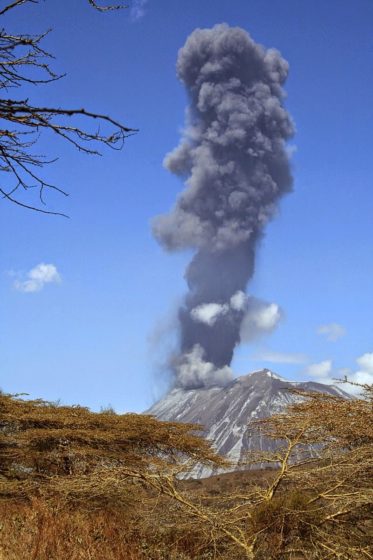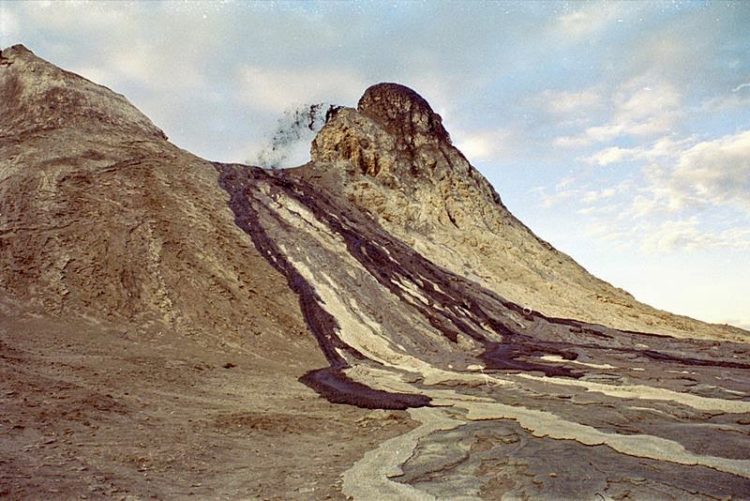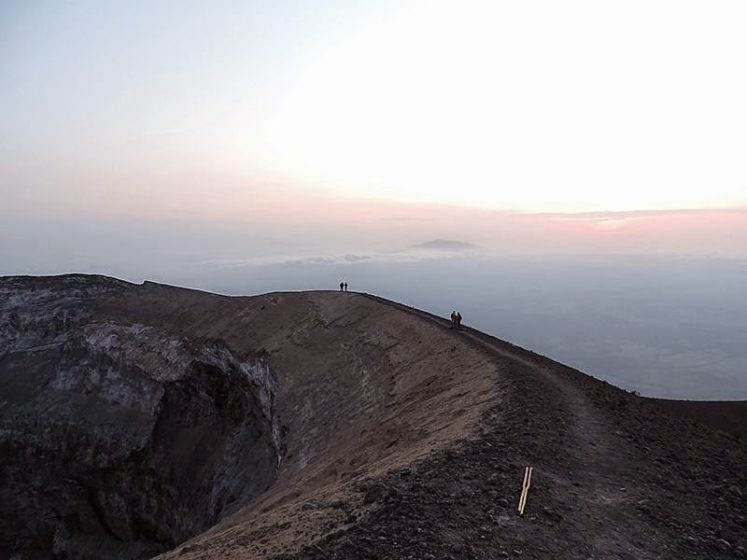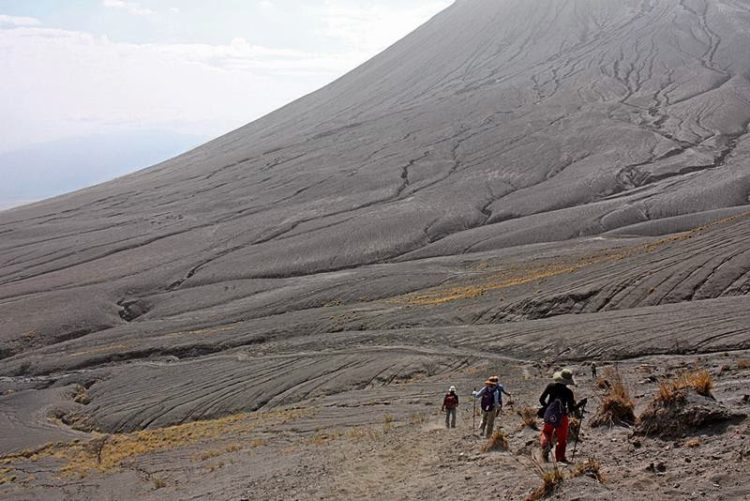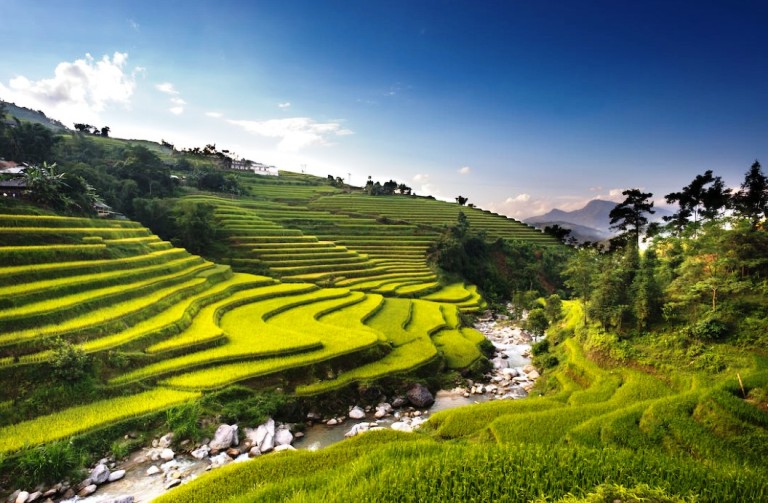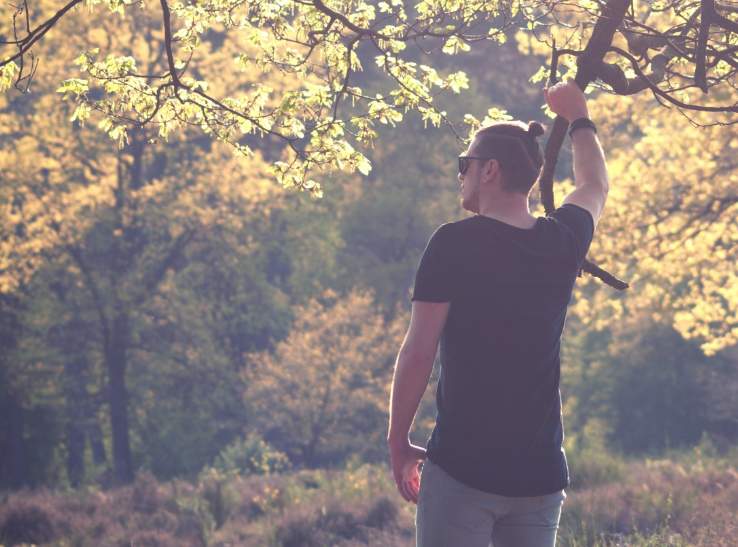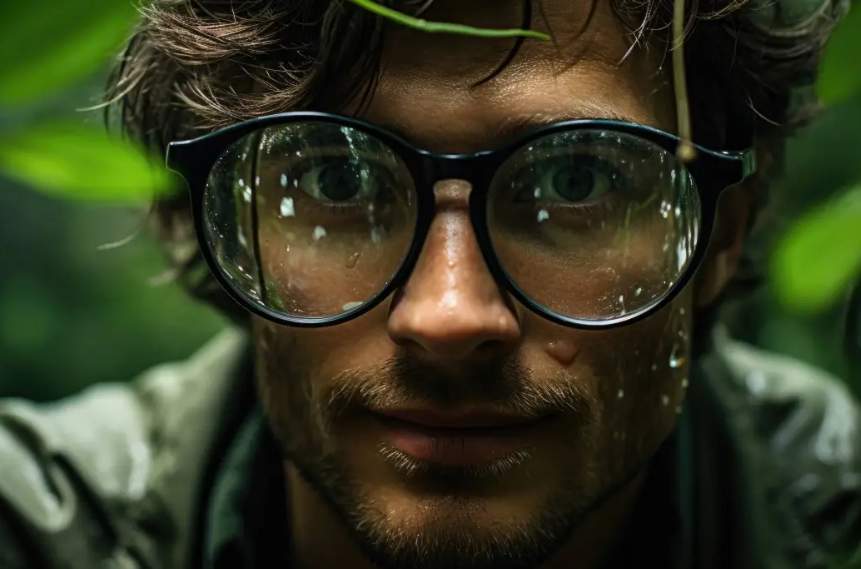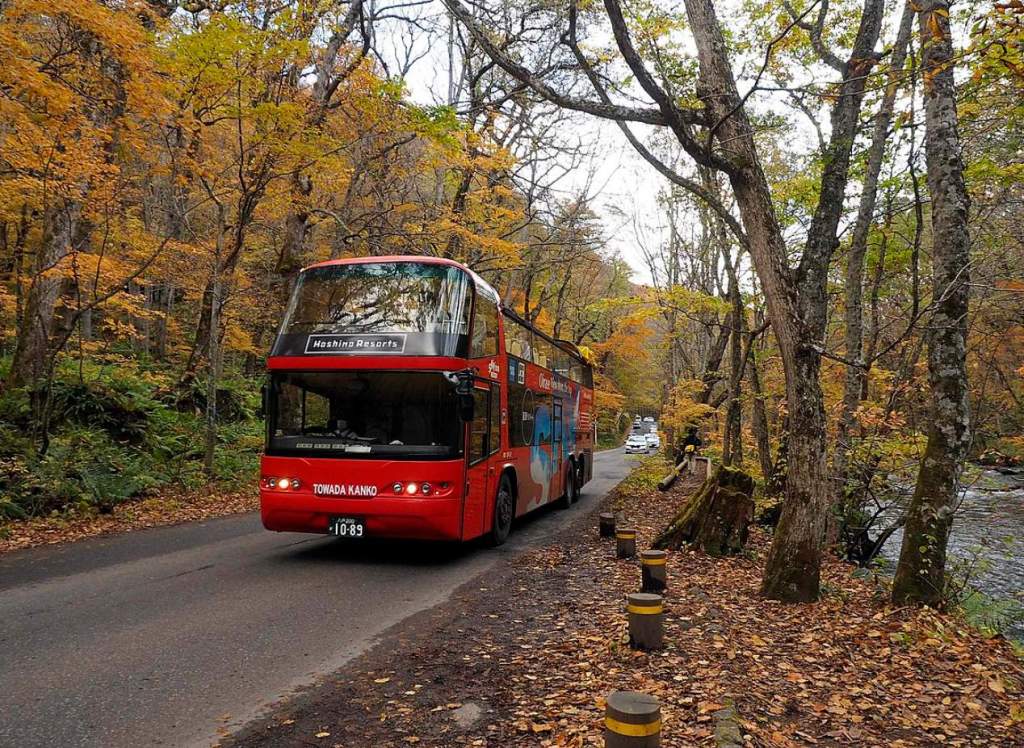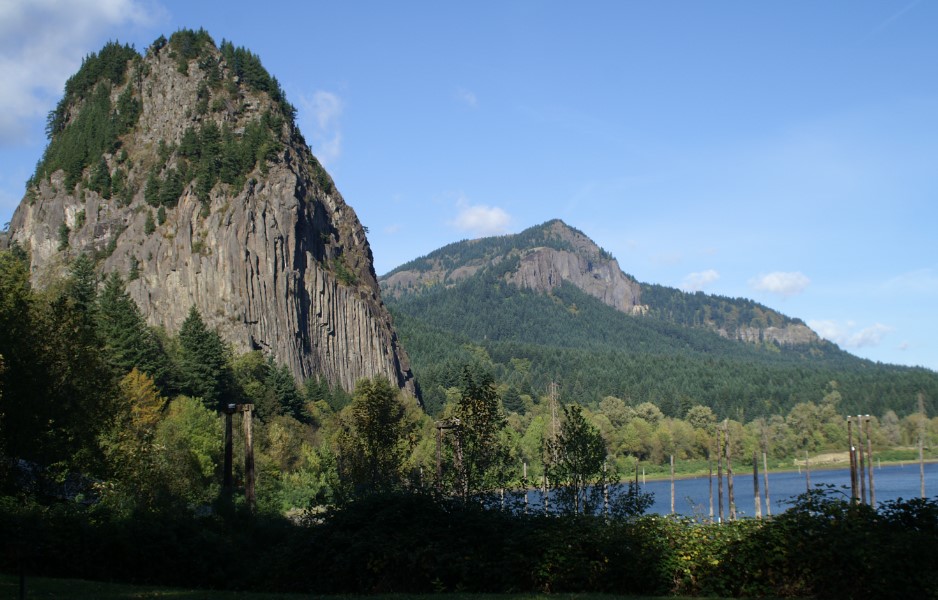Ol Doinyo Lengai is located in the north of Tanzania, near Lake Natron, and is part of the volcanic system of the Great Rift Valley in East Africa.
The mountain altitude is 2962 meters, is a part of the fault zone, which is called Grid Sikes, where, the crust is predominantly thin. This is one of the rarest volcanoes in the world, one that spews natrocarbonatite lava.
The composition of the lava is such that it permits the volcano to explode at adequately low temperatures. The melt temperature of 510–600 °C is the coldest and most molten lava in the world. It flows along the ground like water. Moreover, the hot lava color is black or dark brown, but after a few hours of exposure to air, the carbonate melt brightens, and some months later it becomes almost white.
So that it does not snow as it might seem at first sight. Moreover, solidified lava carbonate is soft and brittle, effortlessly soluble in water, apparently, so geologists find no trace of similar eruptions in ancient times. The sun lava crystal components (sodium carbonate) sparkle just like beautiful diamonds. In the fog, on the contrary, the lava becomes almost invisible, gently flowing down the slopes. He is caught by surprise tourists and abruptly finds his shoes burning.
This rare volcano is very active and frequently erupts, which is why all the nearby areas within a radius of 100 kilometers are frequently covered with ashes. In the neighborhood, you can also see extinct volcanoes that are fellow “Ol Doina Lengai,” but I haven’t spewed black lava. Moreover, researchers believe that the eruption of the volcano can reach a height of about 1000 meters and produce a black fly column of ash.
Furthermore, if you want to climb the volcano, then it is possible, but you’ll have to overcome the little trouble. Approximately half of the route passed, the promotion became much slower, since feet were slipping back and drowning, and walking at an altitude was much more exhausting. The trail was hardened lava on which to go hard and dangerous, and volcanic ash in which the legs are buried up to his ankles.
Thus, a layer of lava reaches half a meter deep, and it shows through thick grass, which a few years ago covered slopes all the way to the top. Much closer to the top, an odor begins to be felt. When you reach the top, you’ll observe the blowing strong and cold wind. A descent is even more dangerous than climbing a mountain.
Also Read: The Alnwick Garden Poisonous Plants
